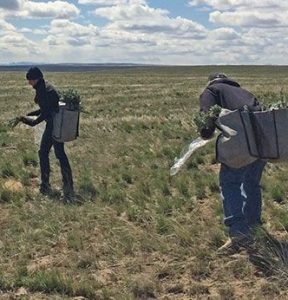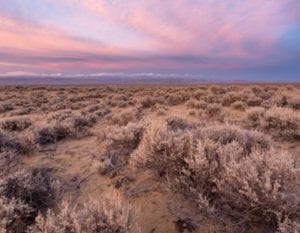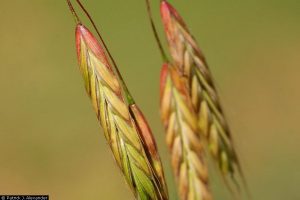Training / Class
Course website and registration link
Watch the course trailer
Are you interested in joining the global movement to restore our world? Do you want to become more skilled at preventing, halting, and reversing the degradation of ecosystems? Are you looking to create a national blueprint for ecosystem restoration in your country? The United Nations Development Programme (UNDP) and the Convention on Biological Diversity are offering a FREE Massive Open Online Course on Ecosystem Restoration.
This course compiles research from leading institutions engaged in ecosystem restoration to build awareness and skills on the process of restoring ecosystems. The course serves as an introduction to the Short-Term Action Plan on Ecosystem Restoration (STAPER) – a methodology adopted by the United Nations Convention on Biological Diversity to support governments in the development and implementation of their national restoration strategies.
The course starts on 19 September 2022. It is designed to support government representatives in creating a national blueprint for ecosystem restoration, but is open to everyone.
Online course registration.
IFTDSS for Prescribed Fire Plans course is available anytime on the Wildland Fire Learning Portal. You can enroll yourself in this on-demand online course once you enter the Wildland Fire Learning Portal. Select “How to Use IFTDSS for Rx Burn Plans” on the righthand side.
Who: This training course was developed in concert with Society for Ecological Restoration and BLM’s National Training Center. It is available to restoration practitioners within the DOI and our partners. Target Audience: Natural Resource Specialists, Fire, Fuels, Emergency Stabilization and Rehabilitation, Botanists, Wildlife Biologists, Ecologists, Range, Minerals, Mining and Reclamation
What: This self-paced on-line course is intended to serve as an introduction to seed technology and arid and semi-arid lands restoration as a first step towards more in-depth in person restoration and revegetation courses. It provides world-class training on restoring dry land ecosystems, which are critical resources in tackling the climate crisis. By the end of the course, participants will have an understanding of: Ecological restoration principles, standards of practice, and concepts to increase the success of restoration efforts, arid/semi-arid ecosystems and the challenges they pose to successful restoration, and how to apply ecological restoration best practices and concepts in restoration planning in arid and semi-arid ecosystems.
Where: Request an account here eDOI and search for: Arid and Semi-Arid Lands Seed Technology and Restoration.
The course consists of the following modules/lessons. Each are accessed separately and must be taken in sequential order.
Module 1: Introduction
Module 2: The National Seed Strategy
Module 3: Principles, Standards and Concepts
Lesson 3.1: Principles and Standards for the Practice of Ecological Restoration
Lesson 3.2: Principles, Standards and Concepts – Native Seed Standards
Module 4: Arid and Semi-Arid Systems
Lesson 4.1: Overview of Drylands
Lesson 4.2: Restoration Challenges
Lesson 4.3: Current Knowledge
Module 5: Developing and Implementing a Restoration Plan
Introduction
Lesson 5.1: Project Context
Lesson 5.2: Vision, Goals, and Objectives
Lesson 5.3: Plant Materials Selection and Procurement
Lesson 5.4: Site Preparation
Lesson 5.5: Developing and Implementing Seeding and Planting Strategies
Lesson 5.6: Monitoring and Management
Lesson 5.7: Putting It All Together
Access free online course.
You can enroll yourself in this on-demand online course once you enter the Wildland Fire Learning Portal. Select “How to Use IFTDSS for Rx Burn Plans” on the righthand side.
The Basic Identification of Grasses two-day short course covers the unique taxonomy of about 50 different grasses and grass-like plant genera. This class is for beginner through intermediate agrostologists and will include basic terminology, dissection, and use of a dichotomous key for identification. You will also learn how to collect and press grasses for future reference or for the purpose of mailing to others for identification/verification. The class may be taken for 1 unit of optional credit at the University of Nevada, Reno (UNR).
When: Class will be March 14-15 OR 16-17, 2022
Where: 300G of Fleischman Agriculture, University of Nevada, Reno
How: Sign up by contacting the instructor, Arnold (Jerry) Tiehm | Atiehm@att.net | 775-742-9180. Be sure to include your preferred class date and indicate whether or not you want to receive class credit.
Cost: $ 150 for non-students, $ 80 for students. Bring cash or check (made to Board of Regents) to the first day of class.
Details: Class will be 8 am -5 pm with a one-hour lunch break. Tea and coffee will be provided.
View Fire Facts guide.
This Fire Facts guide was created to provide basic wildfire information, background, terminology, and resources to increase your knowledge and understanding of wildland fire and the ways we can all contribute to better fire outcomes.
Access training modules.
This learning series responds to Section 7.b.iii, Action Item #5 within the Fuels section of the 2015 Integrated Rangeland Fire Management Strategy, which calls for a comprehensive knowledge transfer program to enhance the fuels management program’s role in sagebrush-steppe management. The Strategy is intended to improve the efficiency and efficacy of actions to address rangeland fire, to better prevent and suppress rangeland fire, and improve efforts to restore fire-impacted landscapes.
The learning modules synthesize the state of the science for six management topics:
- Background and origins of the conservation problems facing the sagebrush steppe and greater sage-grouse
- Understanding and applying the concepts of resistance and resilience
- Management of sagebrush ecosystems experiencing conifer encroachment
- Management of sagebrush ecosystems at risk of or invaded by invasive annual grasses
- Restoration of sagebrush steppe ecosystems
- Issues specific to the eastern range of greater sage-grouse
Please visit the UI website for details about dates and timing.
The University of Idaho (UI) offers a variety of online fire and natural resources courses with Great Basin content. These courses and degree programs can help you develop as a professional and succeed in fire and natural resources management. View the list of online courses or certificate and degree programs. Consider taking one or more online courses, a certificate or enroll in a degree program. This is a great option as many professionals are place-bound, face limits on travel budgets, and are challenged to effectively accomplish science-based management on the ground to address pressing needs for management and conservation in Great Basin ecosystems and beyond.
The Fire Ecology, Management and Technology Certificate and the Master of Natural Resources (MNR) degree can be completed entirely online — without ever coming to campus, and at in-state tuition rates for all.
As many professionals are place-bound and face limits on travel, these online training options can help practitioners accomplish science-based management on the ground to address land management challenges in the Great Basin and beyond.
Questions? Contact cnr-grad-studies@uidaho.edu
FireWorks is an educational program about the science of wildland fire, designed for students in grades K-12. Educator workshops are offered each year to teach educators, community leaders, and agency communicators how to use FireWorks. Two research projects have shown that FireWorks increases student and adult understanding of wildland fire.
FireWorks provides students with interactive, hands-on materials to study wildland fire. It is highly interdisciplinary and students learn about properties of matter, chemical and physical processes, ecosystem fluctuations and cycles, habitat and survival, and human interactions with ecosystems. Students using FireWorks ask questions, gather information, analyze and interpret it, and communicate their discoveries.
Visit Colorado State University (CSU) course overview
The online Graduate Certificate in Communications for Conservation at Colorado State University offers conservation practitioners and communicators a holistic program for learning ideas, skills, and tools to communicate and engage with a wide range of public stakeholders, including media and communications specialists, decision-makers and thought leaders, other scientists, and everyday citizens.
- « Previous
- 1
- 2
- 3
- Next »





